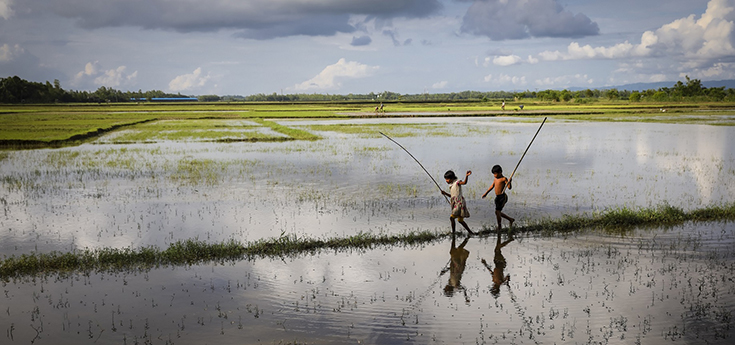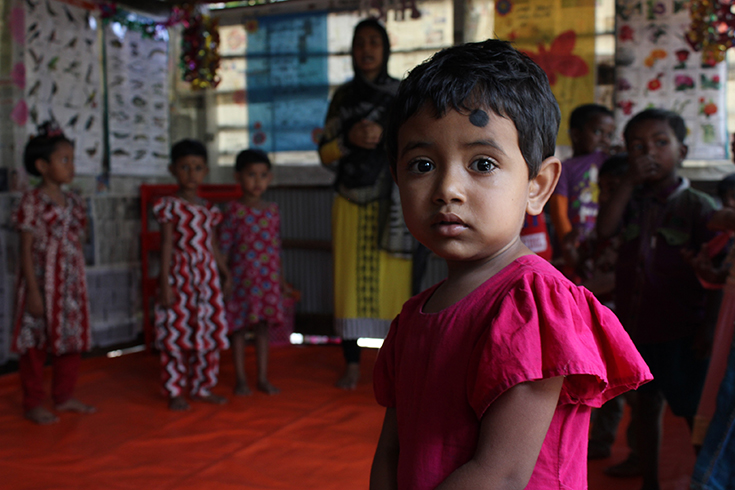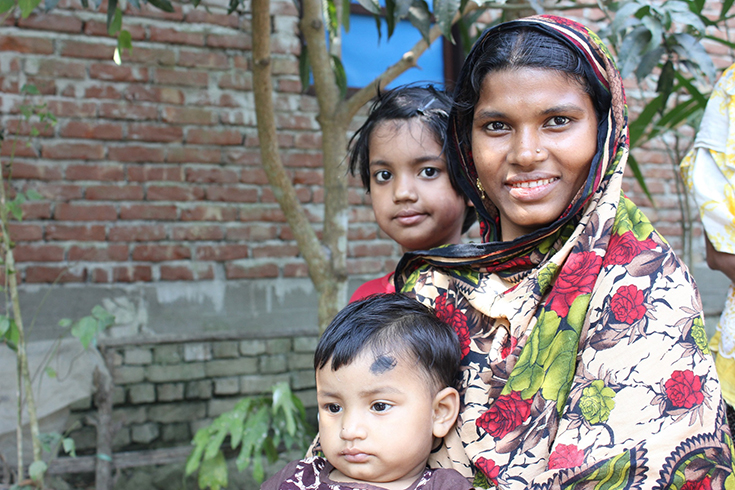Making drowning prevention a worldwide priority
Drowning is a silent epidemic that claims an estimated 360,000 lives every year, many of them children. But this leading killer isn’t getting the global attention it deserves, writes Steve Wills, Head of International Programmes, RNLI.

The UK RNLI charity is working with global leaders, public health organisations and at-risk communities to help turn the tide. It’s the charity’s mission to make drowning prevention a priority worldwide and reduce this staggering loss of life.
The charity and its partners are working to address the issue through demonstrating low cost solutions in several countries. These include teaching swimming and survival skills, training lifeguards and developing low cost water rescue equipment. For the very youngest children, a safe day care environment helps to protect them from the everyday risks of drowning.
Some countries are more at risk than others. Bangladesh has a drowning rate five times higher than other low and middle-income countries as it is surrounded by 700 rivers and around 5,000 miles of inland waterways, with the vast majority of land less than ten metres above sea level. Theseextensive bodies of water mean that children are always only steps away from danger – most drownings occur within 20 metres of the home. Research has shown that children aged between one and four are particularly vulnerable to the dangers of ever-present open water, with drowning responsible for almost half (40 per cent) of all deaths in this age group.
Children are most at risk between 09:00 and 13:00hrs when parents are busy working and doing chores. This challenge is compounded during the busy harvest season, when adults are needed to work in paddy fields as well. Many parents are faced with an impossible situation – they have to work to put food on the table, but childcare isn’t widely available or is financially out of reach for many families.
Children in low income countries will only benefit from investment in their long-term development and survival (eg nutrition, education and immunisation) if they are also protected from childhood drowning, and so survive into adulthood. Drowning is preventable – there are simple, low-cost, sustainable solutions.
To combat the problem, the RNLI has launched the Crèches for Bangladesh appeal and has been encouraging public donations to help provide free crèche places. This will ensure a secure place for children to play and learn while being protected from the risks of drowning. Access to a free crèche space reduces a child’s risk of drowning by 82 per cent, as well as providing essential early childhood development opportunities.

Along with running the appeal, the RNLI has secured special funding support, which means all donations made until April 30, 2019 will be doubled by the UK government.
This appeal ultimately seeks to protect pre-school children from drowning, but the crèches offer much wider benefits to both the children attending and their local community. They offer childhood development opportunities through the teaching of vital life skills and early years education; a space to flourish from a young age. Parents are given the freedom to carry out domestic or paid work knowing their children are safe.
Women are empowered to take on roles as crèche leaders or ‘anchal maas’, with each anchal maa responsible for up to 25 children in her care. All anchal maas receive full training and a small stipend for their work, but more importantly, they play a central and important role in their local community, setting an example for younger women and promoting female empowerment. With training and support provided by local partners, the model can be easily scaled up and managed by local people in their own community.
Honufa’s story
Honufa, 26, is from Betagu Pouroshovar village in Bangladesh. In her own words, she describes what it’s like to needlessly lose a child to drowning. “I lost my boy, Siam, to the river in 2015.

Honufa lost her son to drowning before the crèches were introduced (Image: RNLI)
“It was around 11 in the morning. My son and some other children were playing near some water. The river was flooded at that time. The children all climbed into the river and began swimming. But only my son, who couldn’t swim, couldn’t get out. This is what the other children told me later.
“We took my son to the hospital, but the doctor said that he was no more. I still cannot properly express my feelings about his loss.
“He was a very good boy, calm and patient and he always listened to his mother. At that time, there was no crèche and no awareness about drowning or water safety so that was bad for everyone.”
Donating to this campaign could make a huge difference to the drowning rate in Bangladesh and save children’s lives. Find out more about the campaign here